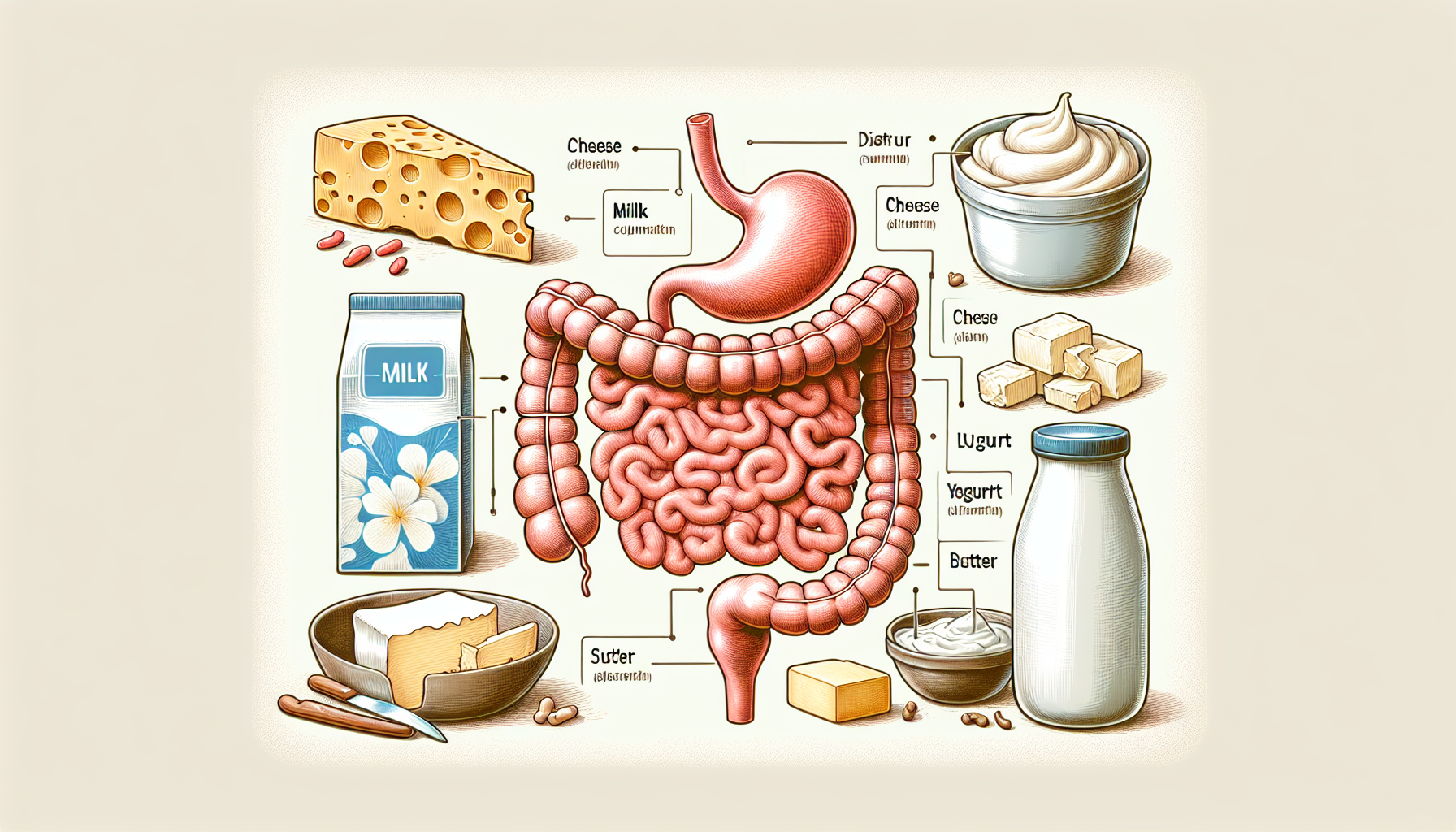Dairy products, derived from the milk of mammals such as cows, goats, and sheep, are a staple in many diets around the world. They are a primary source of essential nutrients, including calcium, vitamin D, and protein. However, the effects of dairy on gut health have been a topic of discussion among nutritionists, researchers, and health-conscious individuals. This article delves into the complex relationship between dairy consumption and the digestive system, exploring both the benefits and potential drawbacks.
The Digestive Journey of Dairy
When we consume dairy products, they undergo a digestive process that begins in the mouth and ends in the intestines. Enzymes play a pivotal role in breaking down the components of dairy, such as lactose, the sugar found in milk. For individuals with lactose intolerance, the deficiency of the enzyme lactase can lead to digestive discomfort, as the lactose remains undigested and ferments in the colon.
Additionally, the proteins in dairy, such as casein and whey, can also affect gut health. For some, these proteins are a source of essential amino acids, but for others, they can trigger sensitivities or allergic reactions that may impact gut integrity and function.
Dairy’s Role in Microbiome Balance
The gut microbiome, a complex community of microbes residing in our digestive tract, is crucial for our overall health. Dairy products, especially those that are fermented like yogurt and kefir, can contribute beneficial bacteria to the microbiome. These probiotics can enhance digestive health by improving the balance of gut flora, aiding in digestion, and supporting the immune system.
For a deeper understanding of how diet affects microbiome balance, the article on The Role of Gut Microbiota in Disease Prevention offers valuable insights.
Lactose Intolerance and Dairy Alternatives
Lactose intolerance is a common condition where the body’s ability to digest lactose is impaired. Symptoms can include bloating, gas, diarrhea, and abdominal pain. For those affected, lactose-free dairy options or plant-based alternatives such as almond, soy, or oat milk can be beneficial. These alternatives can provide the creamy texture and taste of dairy without the discomfort associated with lactose intolerance.
Individuals looking to manage their symptoms might find the strategies outlined in Using Diet to Manage Ulcerative Colitis Symptoms particularly useful.
Calcium Absorption and Bone Health
Dairy is renowned for its calcium content, which is vital for bone health. The body’s ability to absorb and utilize calcium is critical for maintaining strong bones and preventing osteoporosis. Vitamin D, often fortified in dairy products, is another key player in calcium absorption and bone health.
To explore this topic further, consider the comprehensive guide found at Bone Health, which provides in-depth information about maintaining strong and healthy bones throughout different stages of life.
Dairy and Inflammation
The relationship between dairy consumption and inflammation is complex. Some studies suggest that certain dairy products may contribute to inflammation, particularly in individuals who are allergic or sensitive to dairy proteins. Conversely, other research indicates that dairy can have anti-inflammatory effects, especially when it comes to fermented products rich in probiotics.
For more detailed information on the interplay between diet and inflammation, the article on The Link Between Gut Health and Hormonal Balance offers a nuanced perspective.
The Impact of Dairy on Digestive Disorders
Dairy’s influence on digestive disorders such as irritable bowel syndrome (IBS), Crohn’s disease, and ulcerative colitis varies from person to person. Some individuals with these conditions find that dairy exacerbates their symptoms, while others tolerate it well. It’s important for those with digestive disorders to monitor their response to dairy and adjust their intake accordingly.
External Resources on Dairy and Gut Health
- The International Foundation for Gastrointestinal Disorders provides a resource on lactose intolerance that includes dietary advice and management strategies.
- The National Osteoporosis Foundation offers a calcium-rich foods guide that highlights non-dairy sources of calcium.
- The American Journal of Clinical Nutrition published a study on the anti-inflammatory effects of dairy, which discusses the potential benefits of milk consumption on inflammation.
The Future of Dairy and Gut Health Research
As research continues to evolve, the understanding of how dairy affects gut health will become clearer. Personalized nutrition, taking into account individual variability in genetics, microbiome composition, and dietary preferences, is likely to play a significant role in future dietary recommendations.
Conclusion
Dairy products can have varying effects on gut health, influenced by factors such as lactose intolerance, dairy protein sensitivities, and an individual’s unique gut microbiome. While they can offer nutritional benefits, they may also pose challenges for some people. A balanced approach, with attention to personal digestive response and potential alternatives, is essential for optimizing gut health in relation to dairy consumption.



